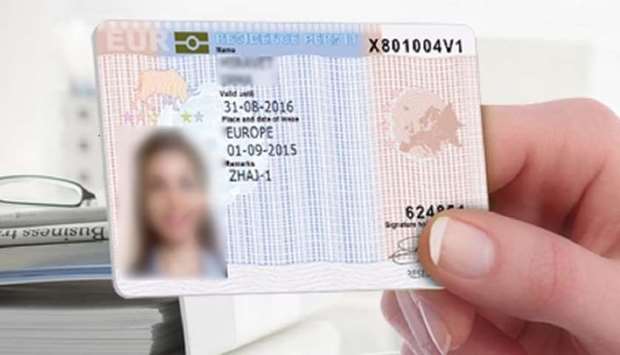Identity cards held by EU citizens will be required to include digital images of the holder's fingerprints as part of a crackdown on fraudulent documents used by criminals and extremists, the European Commission proposed on Tuesday.
In a proposal likely to make waves in countries such as Germany, whose history has made data privacy a guarded asset, the Commission wants to do away with paper-based identity documents that are easy to falsify and can be used to enter the bloc from non-EU countries.
The Commission said in its proposal on Tuesday that it would not oblige countries to introduce ID cards, but those countries that use them would be required to include two pieces of biometric data: an image of two fingerprints and a facial image.
Non-compliant cards should be phased out within five years, and within two years for cards that cannot be read by a machine. New cards should be valid for no more than 10 years.
The Commission also proposed other security measures on Tuesday, which include making it easier for authorities to access electronic and bank account information in other EU countries.
The list of chemicals banned for sale because they can be used to make explosives would be expanded and new controls added to limit trafficking of firearms. The proposals will need backing from EU countries and the European Parliament.
‘Today, we are stepping up our actions to deprive criminals and terrorists of the tools and resources they need to perpetrate their crimes,’ Commission First Vice-President Frans Timmermans said in a statement.
The Commission estimates 80 million Europeans currently have ID cards that cannot be read by machines and do not contain biometric identifiers.
All EU countries except Britain, Ireland and Denmark issue ID cards, although in some, such as Austria and Sweden, they are optional.
Jan Philipp Albrecht, a German Green in the European Parliament and data protection specialist, said the proposed measure would not prevent attacks and violated civil rights.
‘Even fingerprints can be forged and terrorist assassins and their henchmen regularly obtain weapons and financial means without presenting an identity card,’ he said.
The European Union has required since 2009 that passports contain biometric data, although many countries have taken time to implement this rule.
ID documents themselves vary across the bloc. Some countries such as Belgium have biometric ID cards but do not store fingerprint data. In Germany, nationals can choose whether or not to have fingerprint data included. In Spain, new ID cards issued do include fingerprints.

